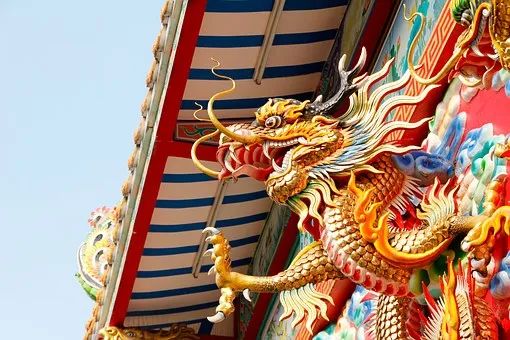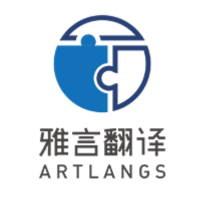今天是农历二月初二,民间俗称“龙抬头”,又称龙头节、春龙节、青龙节等,是中国民间传统节日之一。“龙抬头”来源于民间传说,源于古人对天文的观察和想象。在民间传说里,龙会在这天苏醒,腾云驾雾,遨游九天,兴风布雨,降下甘霖,滋养世间良田,也护佑着一代代龙的传人。

因此,人们会在仲春“龙抬头”这天敬龙庆贺,以祈龙消灾赐福、风调雨顺、五谷丰登。自古以来便流传着这样的说法:
二月二,龙抬头,大仓满,小仓流。
可见,“二月二,龙抬头”其实跟农业生产有着非常紧密的关系,而中华文明根植于农耕文明,所以这一天对中国人来说是非常重要的。今天适逢十二生肖中龙年的“龙抬头”,更是意义非凡。
“龙抬头”用英语怎么说?大体上有以下几种表达方式:
1、Longtaitou Festival
“龙抬头”其实是个节日。所以,“龙抬头”可以说Longtaitou Festival。
2、Eryue'er Festival
因为“龙抬头”是二月初二。所以,“龙抬头”还可以说Eryue'er Festival。
3、Long Head-Raising Day
这种译法采用了直译加意译,虽然把“抬头”两个词给翻译出来了,但是仍然无法让外国人明白什么意思的,且相对于第1种和第2种译法,这种译出来的更繁琐。
相比之下,第1和第2种译法更贴近中国文化。为了让外国人明白其中意思,还可以加上相应的注解:
Longtaitou Festival is a traditional Chinese festival held on the second day of the second month of the Chinese calendar.

怎么用英语介绍“龙抬头”这个节日?Longtaitou Festival (simplified Chinese: 龙抬头; traditional Chinese:龍抬頭; pinyin: lóng táitóu), also known as the Eryue'er Festival(二月二), is a traditional Chinese festival held on the second day of the second month of the Chinese calendar. The festival is a reflection of the ancient agrarian Chinese culture. In the tradition of Chinese culture, the dragon is believed to be the king of all creatures and the ancestor for human being. It is also believed to be in charge of bringing rains, and both of these are important factors in ancient agricultural society. It is called "Dragon rising its head" (Long Tai Tou,龙抬头) because the dragon was traditionally regarded in China as the deity in charge of rain, an important factor in ancient agriculture. It is sometimes also simply called "2 Month 2", (Er Yue Er,二月二) for short.
你知道“龙抬头”有哪些习俗吗?1、理发
have a hair cut
据说在农历二月初二理发能给一年都带来好运气。在这一天剃头,会使人福星高照。
例句:The most famous tradition on this day is to have a haircut.
这一天大家最熟悉的一个习俗就是理发。
2、吃龙食
Eating ”dragon“ food
也就是在这一天,吃东西前面都要加个“龙”字。吃饺子我们叫做吃龙耳(dragon's ears),吃面条我们叫做吃龙须(dragon's beard),吃春饼叫叫做吃龙鳞(dragon's scales)。
3、祭拜祈福
Worship and pray
二月二这一天会祭拜土地爷,灶神,龙神。民间一直认为这天阳气生发,万物生机盎然的时间节点,举行祭神祈求在这一年能够风调雨顺,五谷丰登。
二月二,龙翘首,春意渐浓,花开益盛,愿你如嫩芽扶摇直上,抬头所见皆是希望!
素材来源|(文中部分图片和素材来源于网络,非商业用途,仅用作科普,如有侵权,请联系删除)
